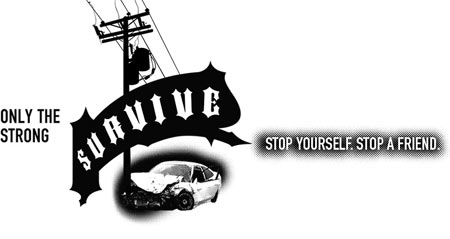
Resources
Short and Long Term Effects
People often forget that common prescription and over-the-counter medications can affect their brains and bodies. For example, many drugs have warning labels about the possible effects of drowsiness or dizziness. So people who use them and then drive cause thousands of car crashes each year. In addition, drugs may blur vision, change depth perception, cause hallucinations, raise or lower blood pressure, and cause one to react too quickly or slowly. Having these effects is especially dangerous when you're behind the wheel.
You are responsible for knowing the effects of medication you take. You can get a DUI even if you were under the influence of cough syrup, so consider that before you drive. Talk to your doctor and know the risks to others and yourself while you're on the road if you take the following medications1:
- Antianxiety medication
- Amphetamines
- Barbiturates
- Stimulants
- Narcotic pain medications
- Allergy medicines
- Blood sugar medicines
- Antidepressants
- Tranquilizers
- Blood pressure medicines
- Motion sickness medications
- Ulcer medications
- Antibiotics
- Antiseizure medicines
- Paregoric
- Antinausea medicine
- Sedatives
- Cough syrups
- Alcohol-containing medicines
- Caffeine-containing medicines
- Decongestants
Remember, combining alcohol with other drugs hugely increases the effects that either drug would have on its own. Don't mix alcohol, drugs, and driving. It's a fatal mistake.
Other Effects
Opioids
- Short-term effects: Relaxation, indifference to emotional or physical pain, drowsiness, constipation, slow breathing, and death.
- Long-term effects: Highly addictive. As the body builds up tolerance for the drug, more is needed to maintain the desired feeling. Withdrawals can be long and physically painful. Combining opioids with alcohol and other drugs can lead to death from respiratory failure.
Central nervous system (CNS) depressants
- Short-term effects: Slows normal brain functions, gives a drowsy feeling, but over time the effects fade as body builds tolerance.
- Long-term effects: Addiction can result, withdrawal can be painful, and the drug may cause seizures and death. Mixing these depressants with alcohol or other drugs can kill you.
Stimulants
- Short-term effects: Alertness, focus, sleeplessness, loss of appetite, increased blood pressure and heart rate, high body temperature.
- Long-term effects: Addiction, paranoia and long-term insomnia, extreme weight change.
- Health Plus. Alcohol and Drug Abuse. http://vanderbiltowc.wellsource.com/dh/Content.asp?ID=483


